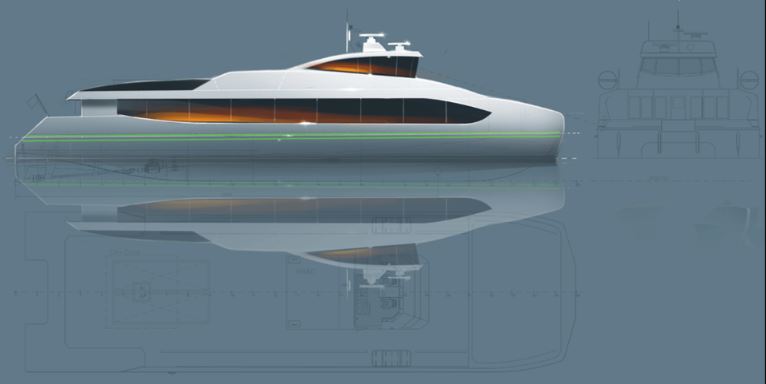SINTEF, a Norway-based independent research organisation, has designed “the world’s first electric speedboat” as part of a European research project aimed at creating an emission-free boat.
The boat, called Medstraum, is operated by Kolumbus AS, a public transport company in Rogaland in Western Norway.
The newbuilding will arrive in Stavanger during the summer, according to SINTEF. It will be operating on the Stavanger – Hommersåk / Byøyene route.
Ordinary speedboats use large amounts of diesel and have high CO2 emissions. To solve this, the EU has directed research towards electrical solutions for a circular economy.
The research project “Transport: Advanced and Modular” (TrAM) is funded by the EU and has 13 European partners.
The TrAM project has developed the zero-emission fast-going passenger vessel through advanced modular production. New manufacturing methods will contribute to lower production costs and lower engineering costs. The project is seen as a revolutionary both in terms of zero-emission technology and manufacturing methods and will contribute to making electric-powered high-speed vessels competitive in terms of both cost and the environment.
Rogaland County Municipality coordinates the project through its transport company. The project started in 2018 and will be completed this year.
This speedboat has room for 147 passengers and 20 bicycles. The boat runs at 23 knots and is said to be the world’s first fully electric speedboat.
Kolumbus is involved in the project to achieve the company’s strategic goal of becoming fossil-free in all transport by 2025. Although speedboats are only a marginal part of Kolumbus’ means of transport, they account for about half of CO2 emissions. Now that the boat is ready, it can be used as a starting point to produce the electric fast boats of the future at a low cost.
The Norwegian partners in the project are Rogaland County Municipality, Columbus, Fjellstrand, Hydro and Leirvik.
The European partners in the project are Fraunhofer IEM, University of Strathclyde, National Technical University of Athens, Wärtsilä, Servogear, Hamburg Ship Model Basin, NCE Maritime CleanTech, Uber Boat by Thames Clippers and De Vlaamse Waterveg.
Source: Offshore Energy






